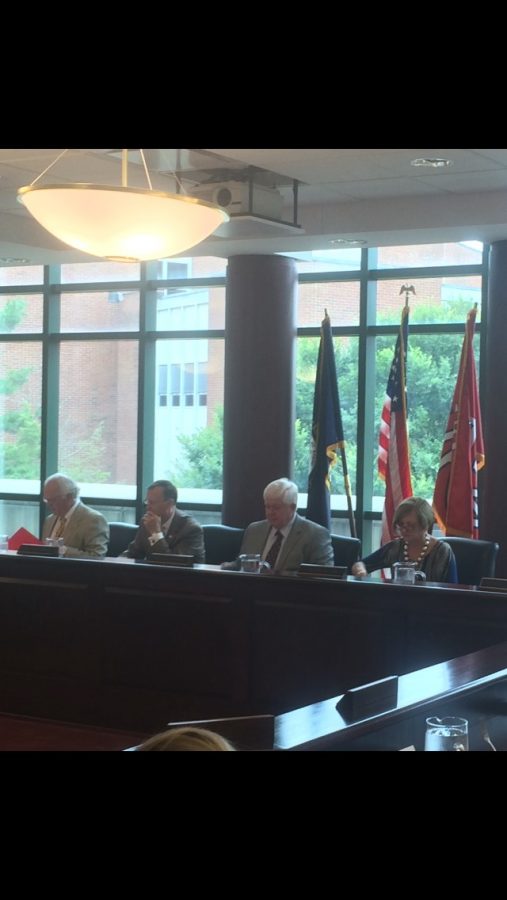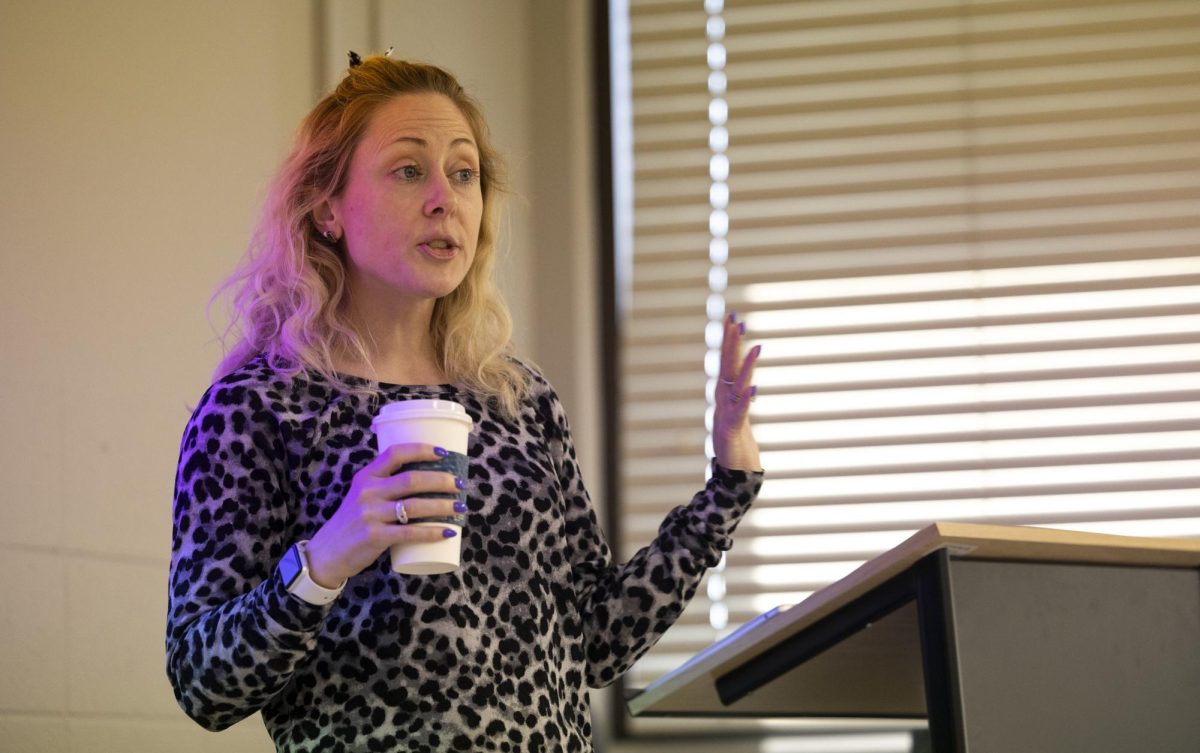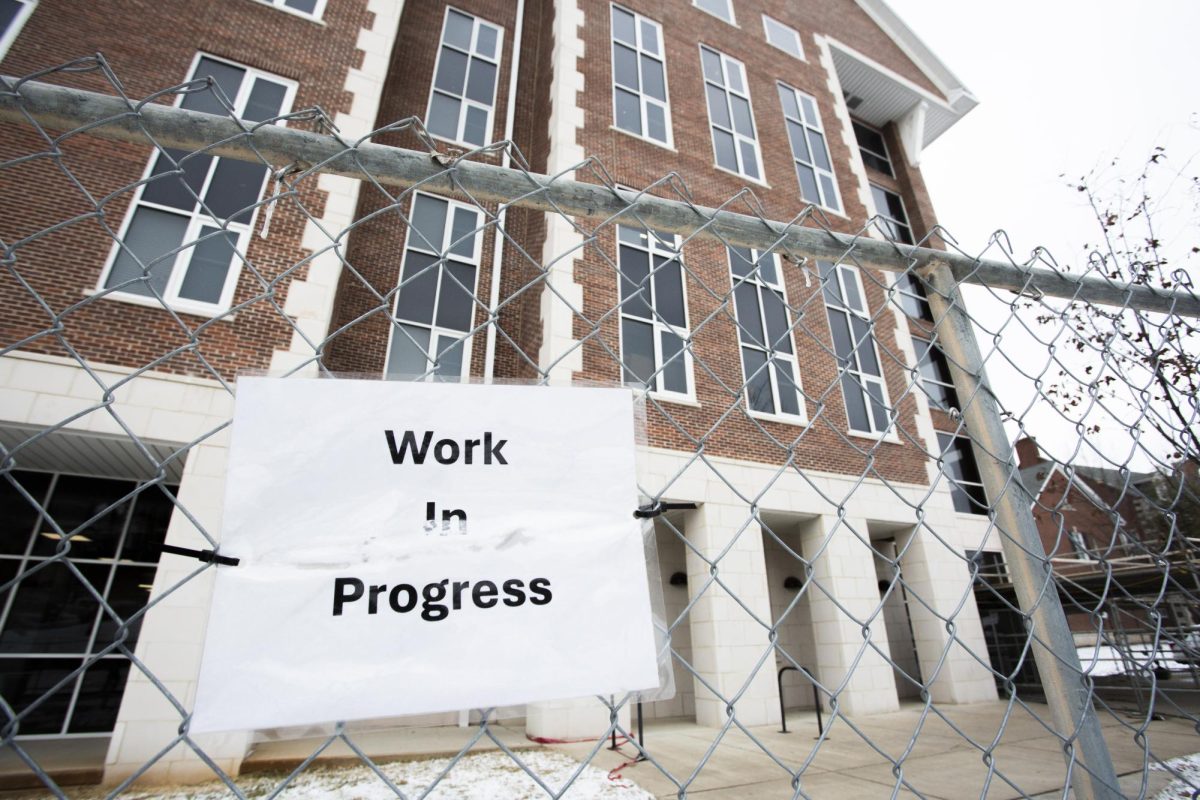Board of Regents approve 2016-2017 operating budget, tuition to increase
June 24, 2016
Tuition for WKU students will increase by $215 per semester to $4,956 under a budget approved Friday during a special meeting of the Board of Regents.
Tuition and fees will be 50.9 percent of the total budget. The next highest contributor to the budget will be the 17.9 percent from state appropriations, which is a 19.4 percent decrease since 2008.
The members of the Board of Regents in attendance approved the total operating budget of $402,252,000 for the upcoming fiscal year, excluding Student Regent Jay Todd Richey, who voted down the proposed budget.
One of Richey’s concerns was the increase to student tuition without all members of the WKU community sharing the burden of the budget cuts.
“Many who understand the complex nature and hard choices that must be made by the Board will look at my vote and ask how else a university is supposed to respond to a large budget cut,” Richey said at the meeting. “However, I want it to be clear that — as much as I dislike the circumstances — I am not inherently opposed to a tuition increase, although I firmly believe the cost of college in 2016 is outrageous.”
“However, I cannot in good conscience vote in favor of a tuition increase unless the burden is shared across the WKU community,” Richey said at the meeting. “As such, I do not see a commitment of sharing the burden of these budget cuts on the administrative level.”
Richey said that the problem he had with the tuition increase was that while the university makes these cuts to various areas, “senior-level administrative positions and up appear to have sailed this budget storm smoothly.”
“This is neither a personal attack against anyone nor a method by which I wish to dodge ensuring our faculty and staff receive a much-needed salary increase,” Richey said at the meeting. “But it is my responsibility to be the defender for the WKU student body during times such as this.”
Regent Gillard B. Johnson was quick to respond to Richey as he said an across-the-board budget cut was “unrealistic”.
“That’s just not how budgets operate at any institution, profit or nonprofit,” Johnson said at the meeting. “Academics are absolutely the key and the goal, but you cannot cut across-the-board just in the name of equality.”
“You can’t be emotional in the response to the budget,” Johnson said. “The budget is a process that rests exclusively with the administration. It’s in our by-laws and it’s in our code of ethics.”
President Gary Ransdell also commented on Richey’s concerns by saying that an across-the-board budget cut “may be possible, but if that approach is taken in the future, there will be programs that will not be able to complete their services because their operating budgets are already depleted in a number of areas.”
Richey also disagreed with the budget because of the 50 percent budget cut that will be taken by the track and field program.
“First and foremost, I believe the approximate 50 percent cut to Track & Field sends a resounding message that if you do not generate revenue for the university, you are not a priority,” Richey said at the meeting. “Regardless of how a $261,008 reduction affects these student athletes, this will certainly have a negative impact on a very successful athletic team that is truly valuable to the Hilltopper community.”
“My solution would be instituting a 3 percent across-the-board cut in the total athletic budget,” Richey said. “When facing these tough cuts, each WKU athletic team should bear the burden equally, and no student athlete should be deprived the opportunity to compete at the D-1 level. Because that was not the decision, I cannot in good conscience support this aspect of the budget.”
WKU Athletic Director Todd Stewart, who was present at the meeting, was able to respond to Richey.
“Since I became Athletic Director a little over four years ago, we had close to $4 million in reductions to athletics,” Stewart said at the meeting. “This is the fifth year now we have made cuts and it is the first year that track and field has been affected,”
“What I would like to point out though, is we did take the interest of the student at heart,” Stewart said at the meeting. “We had 27 undergraduate track athletes. Twenty-four of those 27 have the opportunity to come back to Western Kentucky.”
The last reason why Richey disagreed with the budget is because of what he says is the effective elimination of the Institute of Citizenship and Social Responsibility.
“While we are calling this a consolidation, there’s an implication that both sides consented to such an action,” Richey said. “I have been informed multiple times that Dr. Judy Rohrer, former director of the ICSR, was not consulted before the decision was made, and I am not comfortable approving a budget that condones that.”
“I believe we are using budget cuts to justify a political move designed to suppress the purpose of the ICSR: encouragement of independent thinking and instilling within students a passion for fighting for social justice causes,” Richey said. “We have to look at what is best for all parties, and this is certainly not what is best for the ICSR.”
WKU Provost and Vice President of Academic Affairs David Lee was also present at the meeting and was able to respond to Richey’s concerns.
“Something that the ALIVE Center and ICSR have in common is that they both sit at kind of a nexus between the broader community and opportunities for particularly undergraduate students,” Lee said. “That’s a fundamental thing that both of these have in common.”
“I think at the end of the day they are compatible and they can be consolidated into a working-effective unit,” Lee said in the meeting. “There has been no cut to the budget to the Department of Diversity and Community Studies, which is where ICSR is housed. In terms of cuts to ICSR, there really hasn’t been any cute to ICSR specifically. There has been a $150,000 cut to the ALIVE Center.”
Despite the concerns and disagreement form the student regent with the proposed budget, it was accepted and such cuts will take into effect on July 1.















